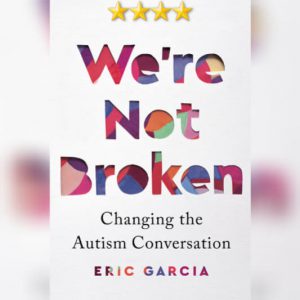Mostly Solid Work A Bit Misguided By Its Own Biases. This is one of the more comprehensive books I’ve found about the actual issues facing Autistics in the current world (circa 2020) – well, in the US anyway. Discussions of education, gender, housing, personhood, etc are mostly solid and mostly problem free, focusing on numerous interviews the author has conducted over several years combined with well documented (roughly 32% of the text of this Advance Reader Copy I read) research.
It even has two *extremely* good points:
1) “We don’t know what Autism in and of itself looks like. We only know how autism informed by trauma presents itself.” -Cal Montgomery
2) From the close of Chapter 9: “People who are not Autistic often assume they are acting benevolently by hand-holding those on the spectrum. But despite their best intentions, there is an element of condescension in thse actions because it assumes that non-Autistic people know what’s best. But it is Autistic people who live with the condition of Autism – for all of its positives and negatives – as well as the consequences of any collective action meant to help them. If there is going to be policy that has seismic impact on their lives, they deserve to have a say it in, no mater how they communicate. Furthermore, while many parent advocates, clinicians, and other “experts” may have good intentions, centering their voices continues to give them power that should lie with the Autistic community. To achieve any true sense of freedom, Autistic people need to take this power back.”
HOWEVER, the fact that the discussion routinely ignores and even outright dismisses the needs and challenges of white Autistics and/ or Autistics who *do* find meaningful employment in the science and/ or technology sectors means that the book fails to have truly the comprehensive discussion of the condition that it seems to seek to have. In ignoring these facets, it doesn’t truly “change the Autism conversation” in any truly helpful manner, as it blatantly ignores and dismisses a key component that can actually do quite a bit of good in trying to address all of the other issues the narrative does go in detail on. We Autistic technologists can create the very technologies Garcia sometimes points to as being needed, in part because we ourselves truly do live with these very same issues – and thus, we don’t actually need a neurotypical trying to approximate some solution, as we can create a solution that works for our own particular case and allow for it to be customized to fit other cases as well.
Ultimately this truly is a very strong look at the state of Autistic society today and the issues Autistics face in trying to fully integrate into larger neurotypical societies, it simply missed its potential to be so much more. Very much recommended.
This review of We’re Not Broken by Eric Garcia was originally written on March 14, 2021.

